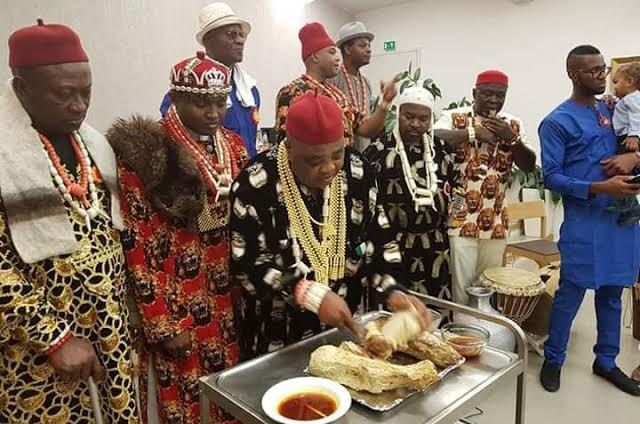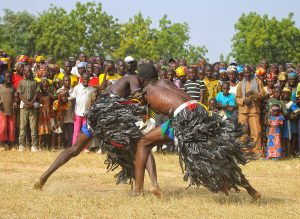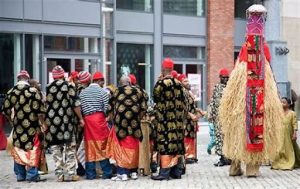Key Takeaway
Among the most significant and beloved customary holidays among the Igbo people of Nigeria, the New Yam Festival—known as Iri Ji or Ikeji in Igboland—is It signals the conclusion of the agricultural season, the start of the harvest, and the close relationship among the Igbo people, their forebears, and the land.
Celebrated with tremendous energy and respect, the New Yam Festival is a time-honored custom in Igboland. For the Igbo people, yams are fundamental in their culture and economics as they represent riches, fertility, and the divine blessings. Apart from celebrating the harvest, the event gives the Igbo people chance to show thanks to the gods and their ancestors for a plentiful crop. Reflecting the strong cultural values and spiritual beliefs of the Igbo community, this is a joyful, eating, dancing, and communal bonding occasion.
The New Yam Festival’s Significance
The New Yam Festival in Igboland is a profoundly significant occasion that strengthens the cultural identity of the Igbo people, not just a basic celebration of harvest. As Igboland’s king of crops, yams are treasured and handled very respectfully. Depending on the locality, the celebration signals the start of the harvest season, which typically runs from August through October.
Yamas are more than simply food for the Igbo; they also represent success in farming and riches. The celebration honors Ala, the soil goddess, and other gods for their benefit as well as guarantees ongoing fertility of the ground. This is also a chance to ask for direction and defense for the society in next year.
The New Yam Festival is a cultural anchor gathering people from all walks of life to honor their legacy. It supports the fundamental Igbo perspective values of diligence, thankfulness, and care of the environment.
Festival Preparations
Weeks ahead of the New Yam Festival, preparations start. The organization of the event depends much on the leader of the community, often the traditional monarch or a revered elder. Choosing the date comes first; frequently, this is decided upon by community agreement or by contacting the oracle.
Once the day is decided upon, the whole community participates in the getting ready. New garments are prepared, homes and public areas are cleaned and ornamented, and particular yam barns are built to hold the yams for the festival. Since they reflect the finest of the crop, the yams to be used in the celebration are carefully chosen for their size and quality.
Cooking, planning feasts to be shared with family, friends, and neighbors, women significantly participate in the festival preparations. Made in great numbers are traditional yam recipes such ji agworogwo (pounded yam) and ji mmiri oku (boiled yam with spicy sauce).

The Day of the Festival
Lead by the traditional monarch or oldest man in the village, the New Yam Festival starts with a set of ceremonies and rites. The custom of the first yam, wherein the leader presents the first yam to the gods and ancestors before any additional yams are eaten, is the most significant of them. This is a gratitude deed as an appeal for further benefits.
The leader then chops the yam and presents it to the elders, signifying the way riches and prosperity are dispersed across the society. The rest of the community may only participate in the new yams, thereby formally beginning the celebration, only after this custom.
Traditional dances, music, and masquerades among other cultural events abound on the festival day. A centerpiece of the celebration, the Atilogwu dance—known for its lively, acrobatic motions—showcases the vibrancy and cultural diversity of the Igbo people. Representing ancestral spirits, masquerades also perform and contribute to the joyful mood with their vibrant costumes and acts.
The holiday revolves mostly around communal eating when families invite friends and relatives to participate in the abundance of the harvest. Food, particularly yam recipes, represents togetherness and the link of community by means of sharing.
The Cultural and Spiritual Effect
Emphasizing the link among the Igbo people, their ancestors, and the land, the New Yam Festival is profoundly spiritual. The event is a means of honoring the ancestors and guaranteeing their ongoing protection as it is thought that the success of the crop depends much on them.
The celebration also provides an opportunity for group introspection and rebirth. This is a chance for the society to gather, resolve conflicts, and strengthen social ties. The festival’s common experience helps the Igbo people to preserve continuity and a feeling of identity.
Apart from its religious importance, the New Yam Festival honors Igbo civilization. It gives younger generations a chance to discover their background and for the society to present its customs to the rest of the globe. The festival’s significance as a cultural event is shown by the attendance of individuals from many nations and areas, thereby noting
Conclusion
Reflecting the values, beliefs, and cultural identity of the Igbo people, the New Yam Festival in Igboland is a vivid and very significant festival. Through the customs, eating, and group events, the celebration reminds us of the value of respect for the land and ancestors, thanks, and hard effort. One of the most important cultural festivals in Nigeria, the New Yam Festival still makes the Igbo people proud and united, therefore safeguarding their legacy for next generations.
Please read all our stories on sustainable agriculture here




